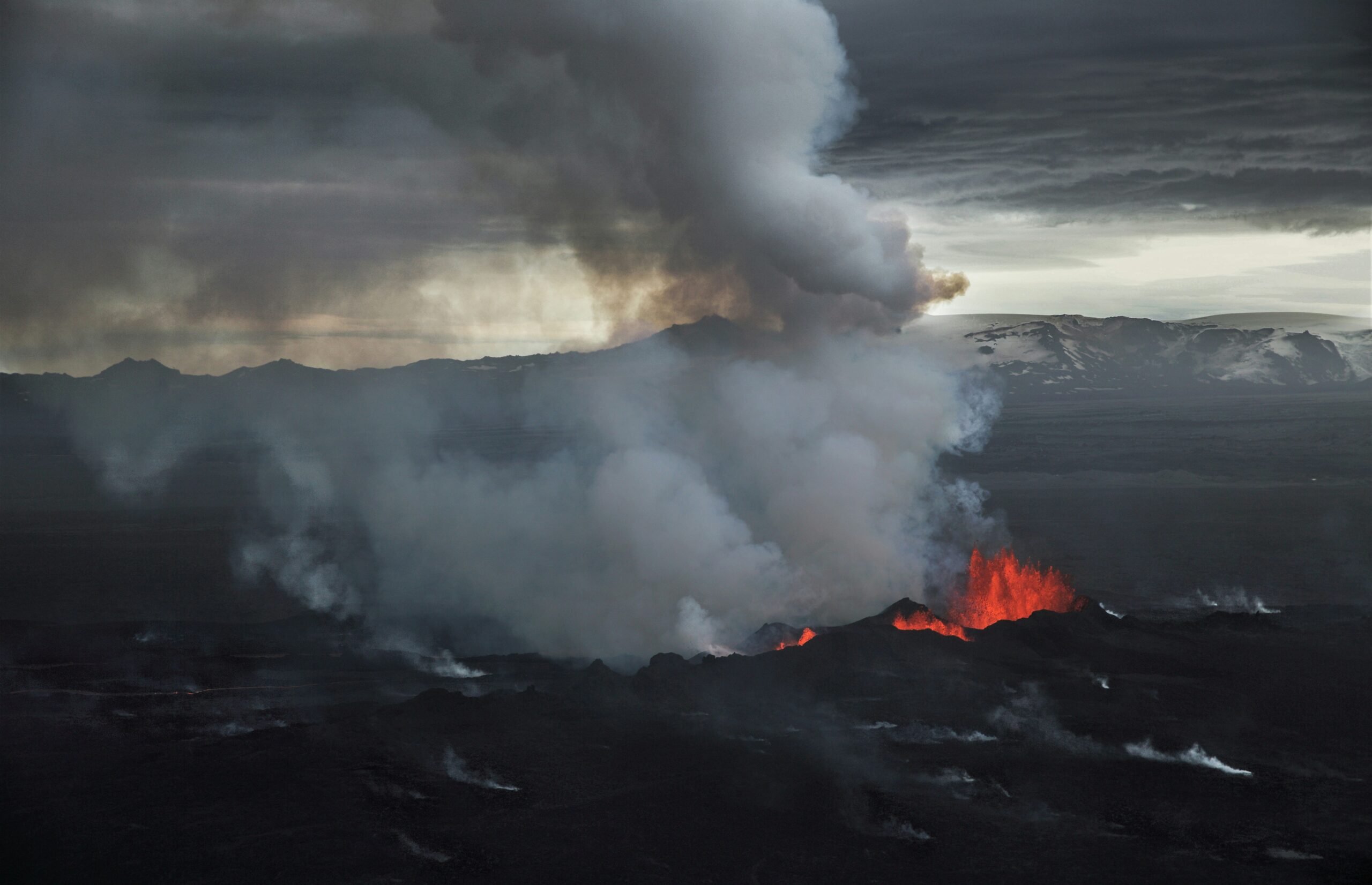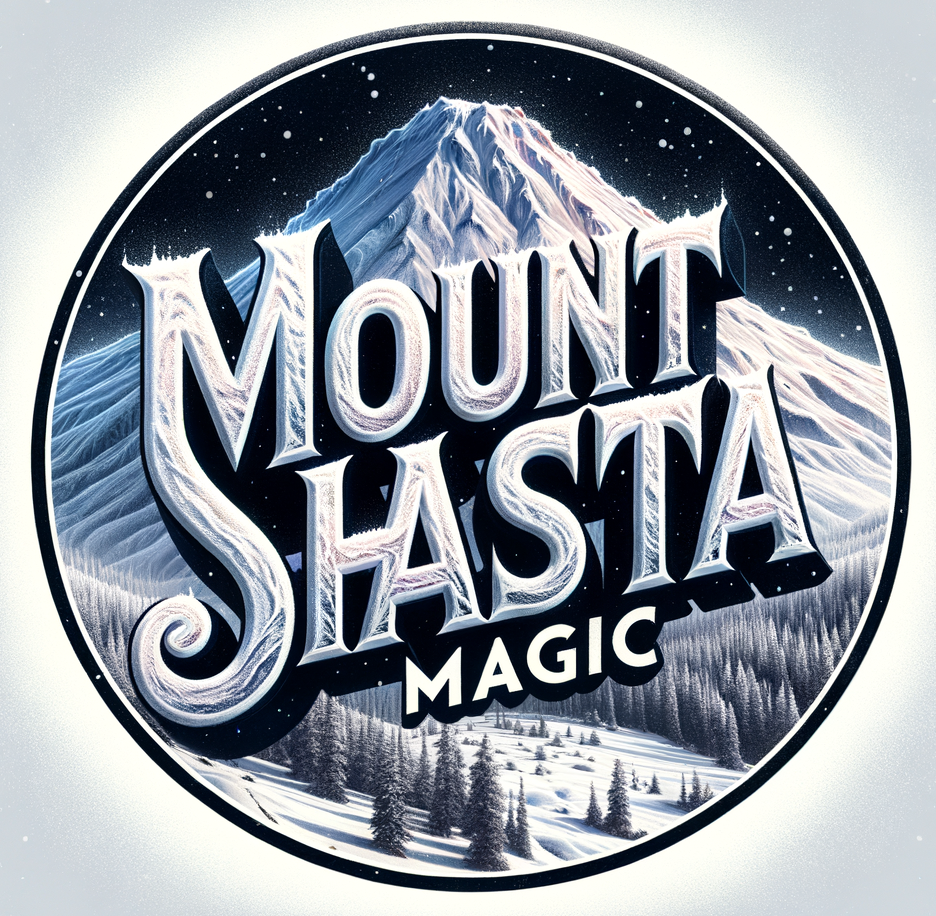If you ever find yourself captivated by the mighty allure of volcanoes, then you may be wondering if there's an annual event specifically organized for volcano enthusiasts. Look no further than Mount Shasta. Nestled majestically in the state of California, Mount Shasta is not only a geological wonder but also a haven for volcano enthusiasts. This captivating mountain boasts a rich history and is a popular destination for thrill-seekers and nature lovers alike. So, whether you're an avid volcano enthusiast or simply curious about the fiery marvels of the Earth, Mount Shasta might just be the perfect place for you to explore and indulge in your passion for volcanoes.
Understanding the Enthusiasm for Volcanoes
The allure of volcanoes
Volcanoes have long captured the imagination of people around the world. There is something undeniably captivating about the raw power and beauty of these natural phenomena. The fiery eruptions, molten lava, and mesmerizing ash plumes create a spectacle that is both awe-inspiring and humbling. Volcanoes are a reminder of the incredible forces at work beneath the Earth's surface, shaping our planet in ways that are both subtle and dramatic.
Popularity among natural phenomena enthusiasts
For natural phenomenon enthusiasts, volcanoes hold a special place of fascination. People who are drawn to the wonders of the natural world often find themselves enraptured by the unpredictable nature of volcanic activity. The chance to witness the birth of new land, the creation of unique geological formations, and the interaction between lava and water is a thrilling experience for those who appreciate the complexity and beauty of our planet.
Role of volcanoes in Earth processes
Volcanoes play a crucial role in the dynamic processes that shape our planet. They are a vital mechanism for the release of pent-up energy beneath the Earth's crust, allowing for the recycling of materials and the redistribution of heat. Volcanic eruptions contribute to the formation of new land, the deposition of minerals and nutrients in the surrounding soil, and the creation of distinct habitats for unique species of plants and animals. Studying volcanoes is therefore not only a way to understand the Earth's past but also to gain insights into its future.
Geological Overview of Mount Shasta
Location and geological features
Mount Shasta is a majestic volcano located in the northern part of California, United States. It is part of the Cascade Range and stands at an impressive height of 14,179 feet (4,322 meters). This stratovolcano is a prominent landmark in the region, with its snow-capped peak visible from miles away.
Geologically, Mount Shasta is composed of layers of lava flows, volcanic ash, and other pyroclastic materials. Its formation can be traced back to millions of years of volcanic activity and subsequent eruptions. The volcano boasts a variety of features, including a large central crater, multiple subsidiary cones, and a network of lava caves. These geological characteristics make Mount Shasta a fascinating subject of study for geologists and volcanologists alike.
Historical records of eruptions
Over the years, Mount Shasta has experienced several notable eruptions. However, the historical records of these eruptions are limited, due in part to the volcano's remote location and rugged terrain. The last confirmed eruption of Mount Shasta occurred in the mid-18th century, but recent volcanic activity is not out of the realm of possibility. Ongoing monitoring of the volcano provides valuable insights into its current status and the potential for future eruptions.
Current volcanic status and monitoring
Mount Shasta is closely monitored by the United States Geological Survey (USGS) and other scientific institutions. Seismic activity, gas emissions, ground deformation, and other indicators are constantly measured to assess the volcano's current state of activity. This monitoring allows for early detection of any potential changes and helps inform emergency preparedness efforts in the surrounding communities. The level of volcanic alertness for Mount Shasta is currently at a relatively low level, indicating that the volcano is dormant but not extinct.

Visitor Activities on Mount Shasta
Outdoor activities for tourists
Mount Shasta offers a wide range of outdoor activities for both tourists and locals to enjoy. Hiking is a popular option, with various trails that cater to different skill levels. Climbing enthusiasts can tackle Mount Shasta's challenging slopes, aiming to reach the summit for a breathtaking view of the surrounding landscape. The volcano is also a haven for winter sports, with opportunities for skiing, snowboarding, and snowshoeing.
Educational opportunities and research
The geological and environmental significance of Mount Shasta makes it an ideal location for educational activities and research. Universities, geological associations, and other scientific organizations often conduct studies and field research in the area. Students and researchers have the opportunity to learn about volcanology, geology, ecology, and other related disciplines by studying the unique features and processes associated with Mount Shasta.
Shared experiences of volcano enthusiasts
Volcano enthusiasts from around the world flock to Mount Shasta each year to immerse themselves in the stunning beauty and geological wonder of the volcano. From passionate photographers capturing the perfect shot to curious individuals seeking a deeper understanding of the Earth's inner workings, these enthusiasts share a common love for volcanoes. The shared experiences, stories, and knowledge exchanged among them create a vibrant and supportive community of volcano enthusiasts, united by their mutual fascination and respect for these natural wonders.
Volcanic Events Around the World
Examples of annual volcanic events
Volcanic events are organized globally to celebrate, educate, and raise awareness about volcanoes. These events come in various forms and cater to different audiences. Some of the most well-known annual volcanic events include volcano-themed festivals, academic conferences, lectures by renowned volcanologists, guided tours of volcanic areas, and interactive workshops on volcanic hazards and preparedness.
Involvement of communities and organizations
Volcanic events often see active participation and involvement from local communities, scientific organizations, educational institutions, and government agencies. These events provide an opportunity for communities to come together, showcase their unique volcanic landscapes, and share their cultural traditions and heritage associated with volcanic activity. Volcano-related organizations play a pivotal role in organizing and promoting these events, connecting enthusiasts, researchers, and the general public.
Event formats and activities
The format and activities of volcanic events can vary greatly depending on their objectives and target audience. Some events focus on providing educational opportunities, featuring talks and presentations by experts in the field, while others emphasize practical learning experiences, such as field trips to volcanic sites. Interactive exhibits, hands-on experiments, and documentary screenings are also common components of volcanic events. Additionally, activities like volcano photography contests, art exhibitions, and volcano-themed competitions add an element of creative expression and engagement for participants.

Is There an Annual Volcano Event on Mount Shasta?
Existence and non-existence of such an event
Currently, there is no confirmed annual volcano event specifically organized for volcano enthusiasts on Mount Shasta. However, numerous activities and events related to the volcano take place throughout the year. These include educational seminars, guided tours, and scientific conferences that focus on the geological and environmental aspects of Mount Shasta.
Reasons for a lack or presence of an annual event
The absence of a dedicated annual volcano event on Mount Shasta can be attributed to various factors. The volcano's remote location, limited infrastructure, and rugged terrain make organizing large-scale events a logistical challenge. Additionally, the current volcanic status of Mount Shasta, which is relatively dormant, may result in a perception that there is less urgency or interest in holding an annual event. However, the strong community of volcano enthusiasts and the potential benefits of such an event may spur future initiatives to establish an annual gathering on Mount Shasta.
Opinions and desires from volcano enthusiasts
Many volcano enthusiasts express a keen desire for an annual volcano event on Mount Shasta. They see the potential for such an event to promote awareness, foster education, and create a sense of camaraderie among like-minded individuals. Volcano enthusiasts appreciate the opportunity to connect with experts in the field, explore the unique geological features of Mount Shasta, and share their passion for volcanoes with others who are equally enthralled by these magnificent natural wonders.
Potential Benefits of a Mount Shasta Volcano Event
Education and awareness promotion
An annual volcano event on Mount Shasta would provide a platform to educate and raise awareness about volcanoes, their impact on the environment, and the importance of volcanic research. Through informative presentations, hands-on workshops, and interactive exhibits, attendees would gain a deeper understanding of the geological processes, hazards, and conservation efforts associated with volcanoes. This heightened awareness can contribute to the preservation of volcanic landscapes and the promotion of responsible tourism.
Increased tourism and local economy support
Hosting an annual volcano event would undoubtedly attract visitors from near and far. These tourists would contribute to the local economy through spending on accommodation, dining, recreational activities, and purchases of volcano-related merchandise. The influx of visitors would provide a boost to the tourism industry and create opportunities for local businesses. Additionally, increased tourism can lead to a greater appreciation for the natural and cultural heritage of the region, encouraging sustainable development and preservation efforts.
Strengthening of enthusiast community
A Mount Shasta volcano event would serve as a gathering place for volcano enthusiasts, creating a strong sense of community and fostering connections among individuals who share a passion for volcanoes. Attendees could engage in lively discussions, exchange knowledge and experiences, and forge lasting friendships. The event would cultivate a supportive network of volcano enthusiasts, providing opportunities for collaboration, mentorship, and the sharing of resources. This strengthened community would contribute to the collective understanding and appreciation of volcanoes.

Challenges in Hosting a Volcano Event
Safety and hazard concerns
Organizing a volcano event brings with it inherent safety concerns. Mount Shasta, like any active volcano, poses potential hazards, including volcanic gases, rockfall, and the prospect of sudden eruptions. Ensuring the safety of participants, volunteers, and organizers would require meticulous planning, risk assessment, and adherence to established safety protocols. Emergency response protocols and effective communication channels would also need to be in place to mitigate any unforeseen risks.
Environmental effects
Hosting a volcano event on Mount Shasta must be done in an environmentally responsible manner. The delicate ecosystems surrounding the volcano could be impacted by increased foot traffic, waste generation, and other event-related activities. Strict environmental regulations and sustainable practices would need to be implemented to mitigate any negative effects. Educating attendees about minimizing their environmental footprint and fostering an appreciation for the natural surroundings would be crucial in maintaining the ecological integrity of the area.
Logistical and planning difficulties
The remote location and rugged terrain of Mount Shasta present logistical challenges when organizing a volcano event. Adequate transportation, accommodation, and infrastructure would need to be in place to facilitate the smooth operation of the event. Coordinating the schedules and availability of experts, presenters, and volunteers can also be a complex task. Attention to detail, effective communication, and careful planning are key to overcoming these logistical challenges.
Interest and Opinion From Volcano Enthusiasts
Surveyed interest level for a Mount Shasta event
Surveying the interest level among volcano enthusiasts for a Mount Shasta event reveals a significant demand for such an occasion. Many respondents express a strong desire for an annual volcano event on Mount Shasta, emphasizing the opportunity to learn, network, and engage with fellow enthusiasts. The survey reflects the enthusiasm and curiosity of volcano enthusiasts, affirming the potential success and impact of a dedicated event.
Participant expectations and wishes
Participants have a clear set of expectations and wishes for a Mount Shasta volcano event. They desire engaging presentations and workshops led by renowned experts, access to the volcano's unique geological features, and opportunities for hands-on exploration. Attendees also express the desire to learn about local culture and history, interact with indigenous communities, and support conservation efforts. Additionally, participants hope for a welcoming and inclusive atmosphere, fostering the growth of a vibrant, supportive community.
Feedback from enthusiasts who attend other volcano events
Enthusiasts who have attended other volcano events around the world provide valuable insights and feedback. They emphasize the positive impacts of these events on their knowledge, appreciation, and personal growth. Attendees highlight the importance of creating a diverse range of activities and sessions to cater to different interests and learning styles. They also stress the significance of involving local communities and indigenous groups, acknowledging their invaluable knowledge and connection to the volcanic landscape.
Role of Volcano Organizations in Holding Events
Role of volcano-related organizations
Volcano-related organizations play a crucial role in organizing and holding volcano events. These organizations have a wealth of scientific knowledge, expertise, and connections within the field of volcanology. They serve as a hub for volcano enthusiasts, researchers, and professionals, facilitating collaboration, disseminating information, and driving advancements in volcanic research and public outreach. Volcano organizations are instrumental in bringing together stakeholders, coordinating logistics, and ensuring the success of volcano events.
Support available for hosting events
Volcano organizations provide valuable support and resources for event organizers. These organizations offer access to a network of experts, researchers, and educators who can contribute to event programming and content. They provide guidance on safety protocols, environmental considerations, and sustainable practices. Additionally, volcano organizations often have access to funding opportunities and partnerships with sponsors, easing the financial burden associated with hosting a volcano event.
Examples of successful events held by organizations
Numerous volcano organizations have successfully organized and held volcano events around the world. These events serve as models of best practices, showcasing the impact and benefits of dedicated volcano gatherings. Examples include the International Volcanic Hazard Conference, which brings together scientists, policymakers, and emergency managers to discuss volcanic hazard reduction strategies. The Hawaii Volcano Summit offers educational seminars, field trips, and interactive exhibits, providing an immersive experience for volcano enthusiasts of all ages. These successful events demonstrate the capacity of volcano organizations to effectively plan, coordinate, and execute volcano-related gatherings.
Future Prospects of a Mount Shasta Volcano Event
Potential plans and interest from event organizers
The interest from volcano enthusiasts and the potential benefits associated with a Mount Shasta volcano event have captured the attention of event organizers. Several organizations have expressed interest in exploring the possibility of holding such an event in the future. Initial discussions revolve around accommodating various educational activities, interactive exhibits, and outdoor excursions to explore the volcano's unique geological features. While the planning and logistical challenges are significant, event organizers are motivated by the enthusiasm and support from the volcano enthusiast community.
Reaction of local inhabitants and authorities
The reaction of local inhabitants and authorities to the idea of a Mount Shasta volcano event is an important factor in its future prospects. Local communities, indigenous groups, and government agencies have a vested interest in protecting the natural and cultural heritage of the region. Engaging with these stakeholders, addressing their concerns, and highlighting the potential benefits of a volcano event will be crucial in garnering their support. Collaboration, open dialogue, and partnership with local authorities and community organizations are invaluable in shaping the future of a Mount Shasta volcano event.
Projected benefits and challenges
If a Mount Shasta volcano event becomes a reality, it is projected to bring a multitude of benefits to the region. Increased tourism, economic growth, and community engagement are among the potential positive outcomes. The event would also enhance education and awareness about volcanoes, promote scientific research, and foster a sense of community among volcano enthusiasts. However, challenges such as safety management, environmental conservation, and logistical planning must be effectively addressed to ensure the success and sustainability of the event. With careful consideration and collaboration, the projected benefits can outweigh the challenges, making a Mount Shasta volcano event an exciting and enriching experience for all involved.
